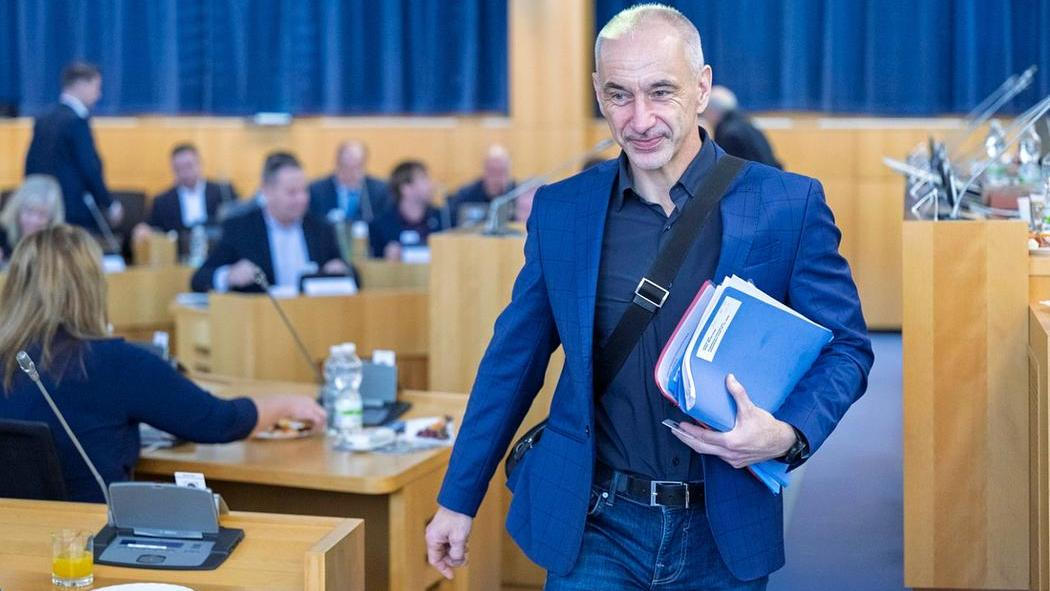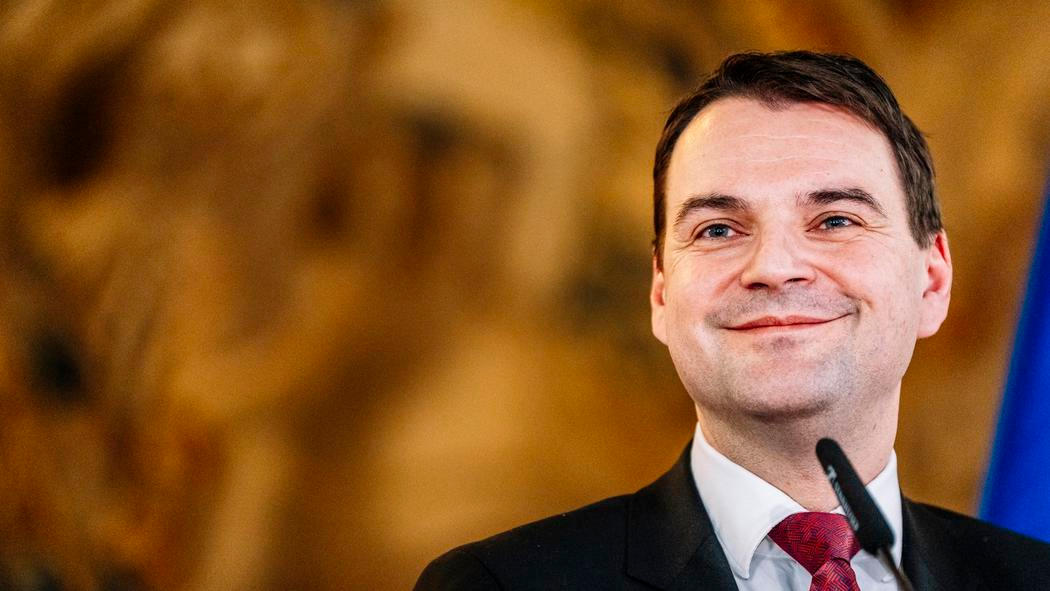It’s a real pleasure to talk to one of my best friends Jamie O’Mahony today. We have a long history together, starting when we studied in Cambridge and lived together at a dormitory. Jamie is originally from Wales, and he’s spent his whole professional life in global e-commerce. He worked at UK Vodafone, at Betfair, an online gaming company, at JustEat, and he has just recently moved to Singapore, where he works as a Singapore CFO at a global online food platform Foodpanda.
We will logically be speaking about e-commerce, food and platform business. However, I cannot start without a few questions about Covid. At the beginning of the pandemic, you lived in London. Now you are in Singapore and frequently travel between the two cities. How would you compare the Covid reality in the UK to the Covid reality in Southeast Asia?
I’ve experienced an array of approaches because I’ve also spent several months living in Istanbul in Turkey during the last two years. And London, Istanbul and Singapore… that’s three wholly different Covid stories.
In what sense?
The UK was probably the least cautious; Singapore was very much the opposite, and Turkey somewhere in the middle. Also, in the UK, the government issues what people take more as general guidelines, whilst in Singapore, it’s much more rules-based, and everybody follows the rules to the letter.
Which model do you prefer?
Well… I don’t think that anyone’s strategy is 100% right. I fully understand that we primarily want to avoid illness and death. But there is also the long-term impact of restrictions, such as the impact on the treatment of other diseases, or the wider social impacts on mental health, the well-being of children who cannot go to school, and so on. I think only time will tell which was the right approach.
But maybe I shouldn’t be complaining too much because Asia’s much more cautious approach has had a very positive impact on our business. When people cannot go to shops or stores and dine at restaurants, they go online. They go digital, download apps, and use e-commerce. So, from the perspective of revenues and digital transformation, Covid has created a new norm and huge opportunities.
By the way, was it difficult to get your work permit and residency in Singapore during the covid times?
Everything was very quick. Singapore is an extremely efficient country; they just get things done. Honestly, it is the most efficient country I have ever been to.
But the travel restrictions and quarantines are an ongoing problem. Flights change, quarantine rules continue to evolve, as do other rules and documentation etc. So, you need to be prepared for change all the time.
What is the Singapore government’s approach to Covid now?
For the last two years, it was about ‘Zero Covid’. Now it has changed to ‘Let’s live with Covid’ thanks to the very high vaccination rate, more than 90% in Singapore. But this new strategy doesn’t mean that people here take it less seriously. Masks, temperature checks, contact tracing, and quarantines are still all in place. If there is one fundamental difference between the UK and Singapore, it is very tight contact tracing management. Yes, in the UK, they built the app and had call centers and so on… but the adoption rate was very low, and the government wasn’t able to drive usage and persuade people to comply. Whereas here, it’s mandatory everywhere: cafes, restaurants, offices or any kind of public building. You need to check in on your app everywhere, and of course, you have to be fully vaccinated.
So you are basically scanning QR codes all day long, similar to us here in Hong Kong.
Yes, absolutely. I had a funny problem last weekend when my phone ran out of battery. I was literally stuck in the city. So, without the app, you cannot exist. But despite that, everything is super smooth, and the local technology is superb.
What would happen if you met someone who is Covid positive?
If you don’t have serious symptoms, you quarantine at home. There is a monitoring of Covid clusters, contact tracing, and precise quarantine management. The Singaporean government knows precisely who you are, where you are, with whom and for how long, and this helps them keep clusters under control very effectively. But at the same time, travel is opening up, and there is light at the end of the tunnel. Therefore, for me, Singapore is a good example of a country with a viable approach to living with Covid. The key is to employ rational measures at the right time. And they mix it with excellent technology and proactive communication from the country leadership.
How is real life affected by these measures?
I have praised the government quite a lot up to now, but sometimes it can also be frustrating, of course. For example, until recently, they only allowed two people to sit together at restaurants, cafés, anywhere… And the problem was that this `maximum of two` included children. So I, my wife and our 20-month-old daughter had to split to separate tables. This is probably what drove the move towards online delivery services like Foodpanda. Otherwise, politicians here are rational not only when it comes to health measures but also in terms of financial support for the affected businesses, which I noticed very early on.
It is almost like a Covid fairy tale.
Haha, maybe. But one thing I need to underline again: if there is a rule or a measure in place here, it’s never a joke. It's real, and everyone needs to comply. No discussions. Very unlike Europe.
Yes, that is a bit of a problem back home in Central Europe: people don’t trust their government and experts. And experts don’t trust each other. Then, nobody complies with anything, and the outcome is some of the worst Covid numbers globally. Especially when it comes to deaths.
Yes. Another noticeable difference between Europe and Asia is the compliance of businesses which in my case are restaurants and cafés. We collaborate with tens of thousands of them, so we have a pretty detailed view. And nobody here would try to violate the rules by intentionally failing to check guests’ vaccine records, for example.
I couldn’t be doing an interview with the Foodpanda CFO and not order food from your app. And now I hear the doorbell, so just hang on.
What have you ordered?
Tacos and burritos, a classic. Very efficient, from order to delivery: 27 minutes.
Perfect, that’s what we like to hear, Haha!
Getting food from you is a good bridge to starting a debate about your business. What has driven you towards e-commerce and food delivery, by the way?
It is simple: I have always loved the business as a customer. I love food, I love tech, I love online services. I think I’m an early adopter of anything digital, which is why I have always worked in this field. First at Vodafone, then online gaming, then consumer tech and now food e-commerce. Everything I have done in my life is connected to digital platform businesses.
You used to work quite extensively for JustEat on national, regional, and global levels.
I liked JustEat because they were real pioneers not only in the digital per se but also in digital apps and mobile internet. They were among the first in the UK to offer a simple, seamless service via app, both B2C and B2B. And I liked being a part of their growth journey. It was super interesting to be hired by a company that was more of a scrappy scale-up in the beginning and then to see how it grew into a mammoth in just a few years. Now JustEat is one of the largest players globally.
I think its valuation is around USD 11.5 billion.
Yes, the guys were smart not only in tech and product but also in their M&A activities. It provided them with another stage of growth. And now, JustEat is present not only in Europe but also in Canada with its acquisition of Skip the Dishes and in the US, thanks to acquiring GrubHub, based in Chicago.
So why did you quit?
For me personally, it was a great ride, but I’ve always wanted to try my luck also outside the European borders. So, when the Foodpanda opportunity presented itself in Singapore, it was the perfect fit.
I know what you mean. For me, it was the same: to shake things up and move to Asia was the best thing. To be able to see how things are done differently, on a great scale and at an amazing speed. When I tell someone back home that we have 100 million clients in our apps, they are just amazed. 100 million is ten times the size of the Czech Republic.
Yes, Asia is so different. Much bigger, much faster. And customers are much more demanding because competition is so fierce. Asia is much harder compared to Europe. But that is what makes it so interesting.
How would you compare customers in the UK, Europe and now Asia?
Everyone has different preferences. And that is why it is very different if you run a business only inside one country and run a regional or global platform. Just one example out of many: in New Zealand, most customers like going to pick the food themselves. In the UK, this demand is much lower, below 10%. So, you need to deploy very different operational models in different countries. But one thing is similar everywhere: people want food quickly, they want it for an affordable price, and they want seamless services. These are the three fundamental principles that drive all our customers, and that’s the relationship that we are always trying to balance in every market.
Currently, as Foodpanda, you have over 115 thousand restaurants and more than 80,000 drivers. This is a much bigger number than soldiers in most militaries. So how do you feed this army via your revenue streams?
Our core business continues to be food from restaurants to customers. You can either pick it up or our drivers will bring it to you. We also offer delivery of groceries, which is the second pillar of our business. Groceries are something we want to zoom in on even more. This area is really beginning to grow globally and will truly disrupt the way we shop for groceries in the future. And we are constantly exploring new revenue streams, which is one of the things that excites me the most about the commercialization of convenience. For example, another operational model we offer is white labeling, where we help our restaurant partners unlock more value from their spare capacity.
Tell me more about the white labeling.
We have developed a number of restaurant franchises. But it’s not something brick and mortar like the McDonald’s franchise. Instead, it’s about menu, ingredients, procurement, marketing, online, all operated under the roof of an already running restaurant.
So, they run both together?
Exactly. Let’s say you own a Mexican restaurant, and currently, you are running your kitchen at 70% of your capacity. And our people will come to you with a proposal: how about we jointly use this surplus 30% of your capacity for making fried chicken, for example. We provide the recipes, ingredients, procurement and our online platform.
Similarly, a high-end Japanese restaurant might not want to do delivery in order to protect their product or brand. But their kitchen might be underutilized. So, we provide an opportunity to add more revenues with an entirely separate brand selling Korean or even Mexican food.
Do you have a fixed restaurant model you offer as a franchise?
We don’t charge an upfront fee like most franchises. They just pay us a commission for what they sell. As I mentioned, this is utilizing their spare capacity. So, it’s very much about unlocking incrementality. What we want to do is to fill the demand. We have loads of data. And when we, for example, notice that there’s a gap in the supply of Vietnamese food in certain locations, we jump in. In the end, there will be more choices for consumers and an opportunity to earn more revenue for restaurants.
What is the collaboration with your drivers like?
Again, it is all about flexibility for everyone. Our operating model is very similar to other ride-sharing and delivery platforms like Uber, Grab or Gojek. We operate a contractor model where our riders choose the hours and deliveries that suit them.
You are a German business, to some extent. You used to be owned mainly by Rocket Internet, who then sold you to Delivery Hero, another German company. So, what is your geographical strategy now?
The business started here in Singapore in 2012 and was later acquired by Rocket Internet. And other investors stepped in and brought expertise to scale it. In 2016, Rocket sold us to Delivery Hero, which gave us a strategic investor with the industry expertise to support further growth, M&A, and economy of scale. We have moved outside Southeast Asia to South Korea, Pakistan, and Europe.
Where are you present in Europe?
Hungary, Slovakia and Romania… for now. However, we have just announced that we are taking the majority shareholding in Glovo, which gives us an even greater presence in Europe and Africa and makes us the largest player in the sector globally.
On the other side, you divested your Russian operations to Mail.Ru, and now you are a largely Asian platform. So, what are your plans for Asia?
We are now really excited about the collaboration with the South Korean Woova Brothers. If I am not mistaken, it was a USD 4 billion transaction.
Nice M&A. So, what’s in the deal? What was the reason to get them on board?
First, South Korea is a truly exciting market. Second, Woova Brothers know how to bring tech to a different level. It is totally automated; they actively use robots, AI, big data, everything… Third, their ability to scale is truly amazing. They were able to break 100 million orders just in a month. In a month! I mean… this is just phenomenal if you just think what their size of business and operations is. This is possible only in Asia.
How does Delivery Hero influence the business?
They provide strategic vision. And operation flexibility is our thing. We are their second-largest platform, so they are logically keeping an eye on us. But they are great, and we are happy we can show that we know how to fulfill ambitious KPIs.
What are the numbers?
We had almost 90% year-on-year growth in Q3, and the revenue was close to a billion dollars (US) for the quarter.
Congratulations! So, from a brand and jurisdiction perspective, Delivery Hero is in the Western world. And you are there more as supporting actors. Then, there is Asia, which is your main domain. And finally, Northeast Asia, where your Woova Brothers are dominant. Correct?
Yes, correct. Although the brand we operate under might be different, there are many similarities in our execution and ambition. But of course, the brands we partner with and how we deal with them – that change from market to market, so there are differences.
This is another thing that I like about Asia: collaborations. You can always a find way to coexist and co-create even with your competitors. For example, we have our own grocery business Pandamart, but at the same time, we also offer other grocery partners like M&S or 7/11. The markets are so large that there is enough space for everyone.
I totally concur, and I see the same collaborative environment in my world too. In e-commerce and fintech, it is very normal that you are partners, collaborators, competitors, and enemies with the same company at the same moment. Different business lines, different opportunities, and thus different approaches.
Yes, frenemies, haha. It is the same also for shareholders’ structures in Asia. Investors don’t have a problem with having very large stakes in companies from the same industry that are fighting each other. Jack Ma is doing that in e-commerce and fintech. The same goes for Masayoshi Son and SoftBank. And our owners are the same: Delivery Hero owns a share of Deliveroo and Just Eat Takeaway.com, our direct rivals.
What is the strongest card in your hand?
Operations. We are extremely efficient backend operators. Our app is the second card. You are using it yourself, so you see that it’s constantly getting upgraded to offer a seamless feel and a great customer experience. So, this is who we are: large scale platform operators with great backend and frontend who can offer collaboration to everyone in every operation model you can think of. We just need to be willing to adapt and evolve. And what is also great about Foodpanda is that we are constantly discovering ourselves.
Great finish. It’s been great talking to you, Jamie! Have fun in Singapore, and all the best to Panda!
Thanks for the nice chat, and hopefully, you will visit us here soon.
Jamie O’Mahony
Jamie is originally from Wales and spent his whole career in online businesses. He was a group financial manager at Paddy Power Betfair, a large online sports betting platform in the UK. He was a financial controller at Dixons Carphone, British multinational electrical and telecommunications retailer. He then moved to online food delivery and served as a global head of finance for JustEat, a global online platform currently valued at USD 11.5 billion. Now, he lives in Singapore and works as a CFO for Foodpanda, another large online food delivery conglomerate. Jamie studied at the Universities of York and Cambridge.
Jan Ruzicka
Jan is a Chief External Affairs Officer at the Home Credit Group, the world’s leading consumer finance provider. Based out of Hong Kong, Jan runs company networks in the US, Asia and Europe. Before that, he used to live in Beijing, Cambridge and Prague. He even spent ten years working for the Czech Government, advocating and shaping the health reform as the Director-General at the Ministry of Health. Jan teaches Behavioural Economy and the Disruption of Finance and Healthcare at universities in Asia and Europe. He is especially interested in how innovation can create financial inclusion and health equality.








